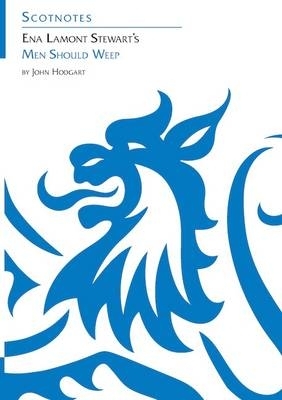Scotnotes Study Guides
2 total works
Ena Lamont Stewart (1912-2006) had a keen sense of the appalling poverty and deprivation suffered by the residents of Glasgow's slum tenements in the first half of the twentieth century. A member of the radical group of young writers and artists gathered around Glasgow's Unity Theatre in the immediate aftermath of the Second World War, she is today most noted for her play Men Should Weep, set in the East End of Glasgow in the 1930s. John Hodgart's Scotnote explores how the play deals with issues of poverty and sexual and social inequality. This study guide examines the roles of the individual characters and outlines the major themes in an approachable and accessible way, and also explores issues of set, dramatic technique and staging. This guide is suitable for senior school pupils and students at all levels.
Sue Glover (1943 - ) began writing plays in the 1970s, making her stage debut at the Little Lyceum in 1980 with The Seal Wife, her first full-length play, in which many of the recurring features and concerns of her work are to be found: the influence of oral culture and folklore, and the re-examination of history, legend and myth from a female perspective. John Hodgart's Scotnote examines two of Sue Glover's plays, Bondagers and The Straw Chair. Both plays can be seen in the context of a very strong tradition of modern Scottish feminist drama which includes the work of Ena Lamont Stewart, Joan Ure, Liz Lochhead, Rona Munro and others. Bondagers is a powerful and moving drama about a band of brave, vulnerable women struggling to survive hardship, exploitation and injustice. The Straw Chair is set on St Kilda, and tells the story of Lady Grange's exile on that distant island. In both plays, Glover gives voices to exploited or alienated women whose identity has been determined by their domestic or working role or their social status in a hypocritical patriarchal society. Issues of set and staging are explored as well as the themes of the plays.
This guide is suitable for senior school pupils and students at all levels.
This guide is suitable for senior school pupils and students at all levels.

